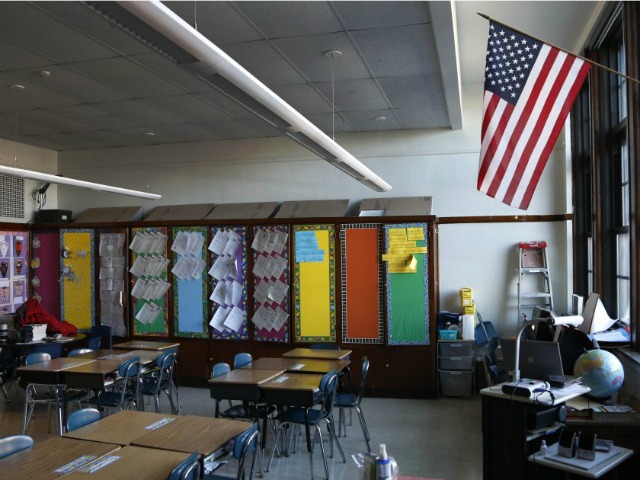
The plaintiffs in a lawsuit that represents a landmark effort to reestablish the right of individual teachers and other public employees to decide for themselves whether to join and pay dues to a union are one step closer to having their case heard by the U.S. Supreme Court.
According to the Center for Individual Rights (CIR), a three-judge panel of the U.S. Court of Appeals for the Ninth Circuit has granted the motion by the attorneys for lead plaintiff and California elementary school teacher Rebecca Friedrichs to decide her case, Friedrichs v. California Teachers Association, on the basis of the pleadings, without a trial or additional oral arguments. The court’s decision means Friedrichs and her nine co-plaintiffs may immediately file a petition to the Supreme Court of the United States.
As Breitbart News reported in May, the plaintiffs filed a federal lawsuit against the National Education Association (NEA) and the California Teachers Association (CTA) in April of 2013, in which they claim a First Amendment right to withhold financial support from a union whose positions they do not share. The teachers argue they cannot assert their right through the union because there is no accountability in the relationship between the union, the collective bargaining agent, and the individuals it is authorized by law to represent. In California, as in other states, public employee unions are political players who often ignore conflicts of interest among members.
CIR President Terry Pell, who filed the suit on the plaintiffs’ behalf, will file a petition in early January. Pell told Breitbart News he expects the Supreme Court to agree to take the case in the spring of 2015 and likely hear it next fall.
“Our goal has been to get this out of the lower courts and to the Supreme Court,” Pell said. “The Ninth Circuit agreed with us that there’s nothing for them to decide against us. This decision shaves about a year off the time it will take to get the case to the Supreme Court.”
“There are 26 states that have laws compelling public employees to pay dues to a union as a condition of employment,” he explained. “If we are successful, these laws would be struck down as unconstitutional because they violate the First Amendment.”
“Employees should join a union and pay dues only if they choose to do so,” he said.
Pell noted that while Friedrichs asserts the First Amendment rights of the plaintiffs, it does not attack collective bargaining laws.
“This case decouples the individual rights of teachers to choose to either join a union or not, and the collective bargaining rights of unions,” he observed.
Pell added that a majority of the Supreme Court justices have made comments during two other cases regarding compulsory union dues, leading him to believe that they are inviting a case like Friedrichs.
“This case is designed to address this issue squarely,” he said.
In a column in the Orange County Register last week, former Los Angeles Democrat state senator Gloria Romero wrote:
Friedrichs has national implications…
CTA has argued that compulsory dues are needed to prevent employees from “free riding” – gaining the benefits of union membership, including collective bargaining on their behalf, without paying for them.
Last June, the Supreme Court stopped short of doing away with compulsory dues in a 5-4 ruling in Harris v. Quinn.
Romero further commented on the “outsized political influence CTA wields on California legislative policy and elections.”
“With 325,000 members, and the collection of mandatory dues from members, it usually gets its way in the Capitol, and in most elections,” she observed. “If the Supreme Court rules that individual public employees are not bound to pay dues to their unions, CTA’s money chest – and its political hegemony – will be diminished, inextricably altering the balance of power in California.”

COMMENTS
Please let us know if you're having issues with commenting.